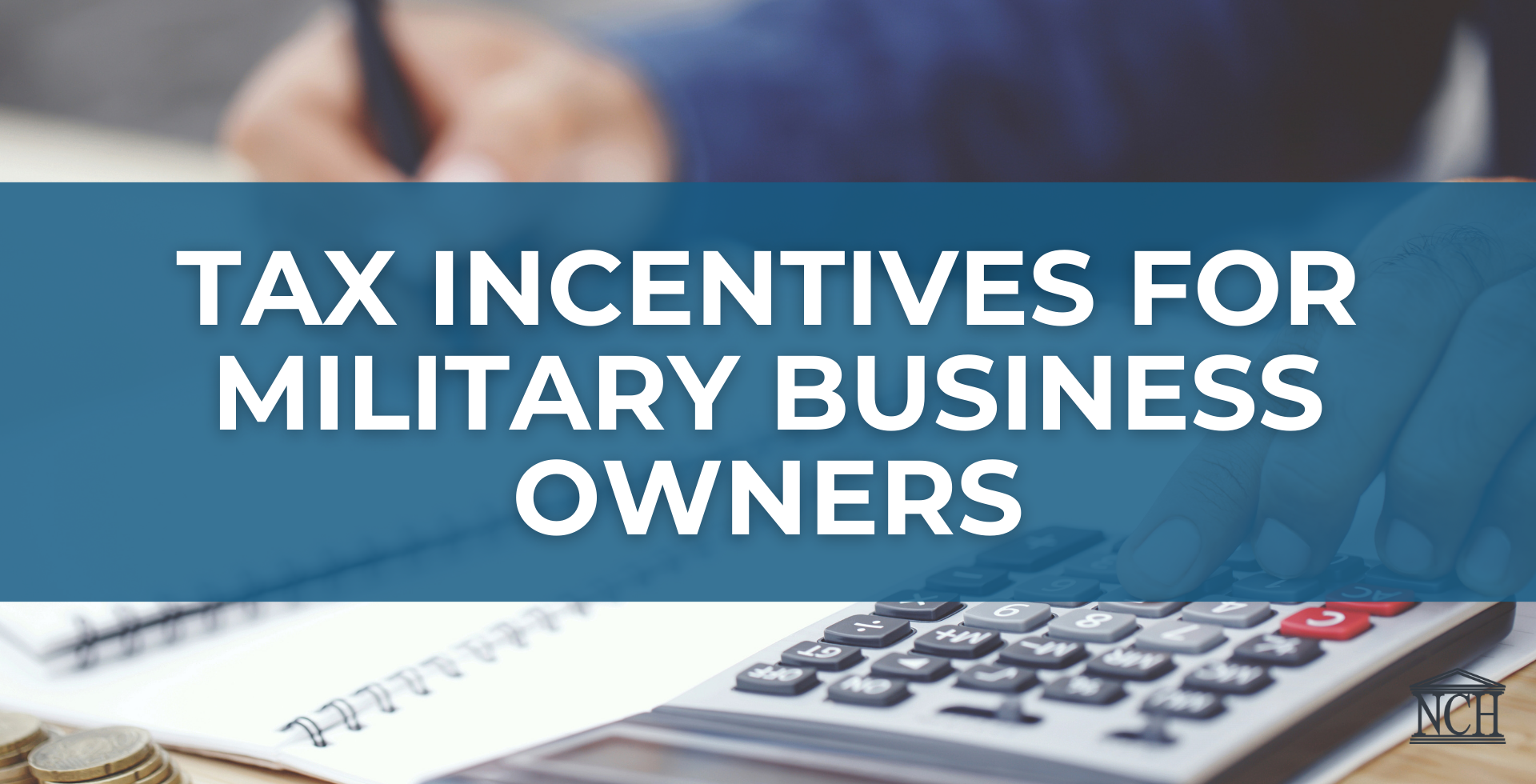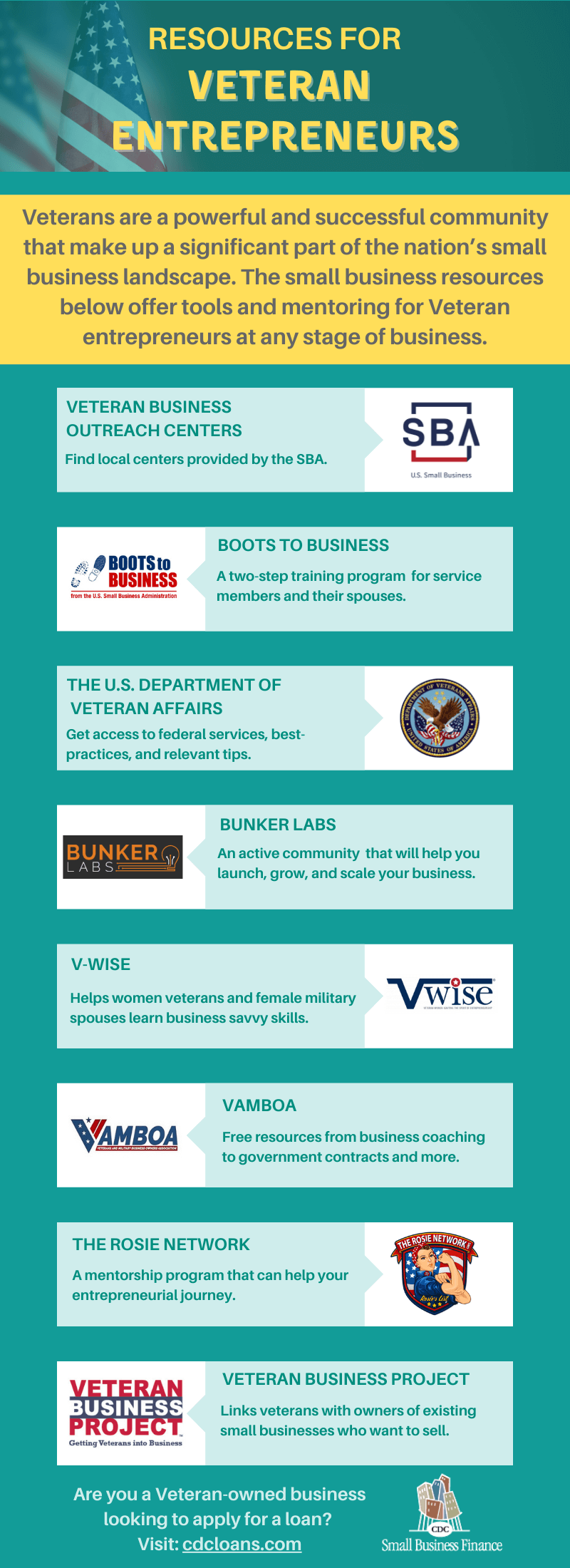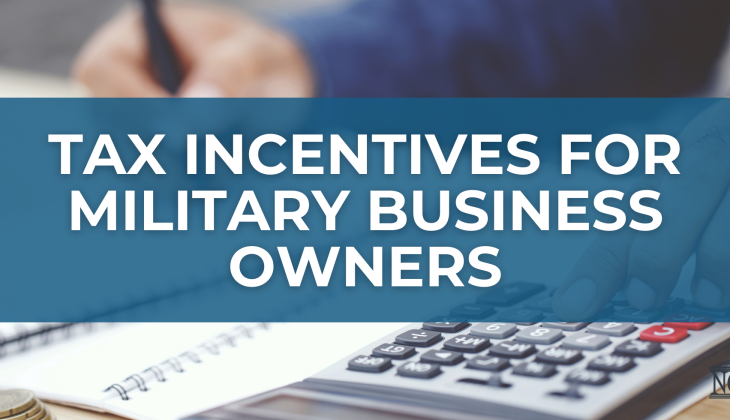Business taxes can be a tricky field to navigate for veteran entrepreneurs, who face a mix of opportunities and challenges that are unique to them. By getting a grasp of the tax landscape, you can make decisions that are more informed and thus optimize your financial outcomes. This article will discuss the main tax considerations for veteran-owned businesses and look at strategies that can give you a leg up on the competition.
Summary of the Article
- Veteran-owned businesses are not automatically eligible for tax benefits, but they can qualify for government contracts.
- Obtaining a Federal Tax ID is crucial for your business and can be done online for free.
- Make use of free resources from the Small Business Administration for help with tax planning.
- Understanding tax credits, such as the Work Opportunity Tax Credit, can significantly lower your tax burden.
- Proper business structure and record-keeping are vital for tax efficiency.
Starting Tax Planning for Veteran-Owned Businesses
Starting a business as a veteran is a praiseworthy step, but it also comes with its own set of tax planning needs. To set yourself up for success, you need to be proactive about your tax strategy. This means understanding the tax codes that apply to your business and taking advantage of any benefits available to veteran entrepreneurs.

Why Veteran Business Owners Need a Tax Strategy
Every business needs a solid tax strategy, but for veteran-owned businesses, it can mean the difference between getting by and getting ahead. A well-planned tax strategy can help you manage cash flow, reduce liabilities, and stay on the right side of federal and state tax laws. But perhaps most importantly, it can help you reinvest savings back into your business, which can help fuel growth and sustainability.
Understanding the tax credits and deductions that your business is eligible for should be a fundamental part of your tax strategy. The credits and deductions that you qualify for can differ greatly based on your business structure and the type of business that you run. So, it’s important to stay up-to-date and consult with a professional when needed.
Typical Tax Issues and How to Solve Them
Many veteran business owners struggle with a few common tax problems, such as deciphering intricate tax laws and figuring out the tax consequences of different business models. Fortunately, these problems can be solved with the right information and tools. For instance, understanding the balance between outsourcing and in-house operations can provide clarity on financial implications and tax responsibilities.
For example, a lot of veteran entrepreneurs don’t know about the tax credits they can get. The Work Opportunity Tax Credit (WOTC) is a credit that can save them a lot of money. This credit is for employers who hire veterans. It gives them a financial reason to help their fellow servicemembers.
Another common challenge is maintaining precise and detailed records. It’s important to keep good records to back up any claims you make on your tax returns. This includes keeping receipts, invoices, and any other paperwork related to your business expenses.
Getting a Federal Tax ID Number: It’s Essential
Getting a Federal Tax ID number, also called an Employer Identification Number (EIN), is a vital move for any business owner. This number is used to identify your business for tax purposes and is necessary for filing taxes, opening a business bank account, and hiring employees.
Thankfully, obtaining an EIN is a simple task that can be completed online via the IRS website, at no cost. Once you have your EIN, you’ll be better equipped to handle your business finances and ensure you’re abiding by tax laws.
Utilizing Free Resources from the Small Business Administration
The Small Business Administration (SBA) provides numerous resources for veteran business owners, many of which are free. These resources can assist you in understanding the intricacies of business taxes and in developing a solid tax strategy.
Take for instance the Veterans Business Outreach Centers (VBOCs) offered by the SBA. They offer a range of business training and counseling, including tax planning. Plus, they can put you in touch with other business owners who are veterans, so you can learn from their experiences and insights.
By utilizing these resources, you can gain a better understanding of the tax landscape and make educated decisions that benefit your business.
Getting to Know the Work Opportunity Tax Credit
The Work Opportunity Tax Credit (WOTC) is a great benefit for businesses that hire individuals from certain target groups, including veterans. This federal tax credit was created to motivate employers to hire and keep employees who have a hard time finding employment. For businesses owned by veterans, the WOTC can be a fantastic way to lower tax liabilities while helping other veterans. Learn more about veteran-owned businesses and the support available to them.
In order to be eligible for the WOTC, your company must employ veterans who fulfill specific conditions, such as having been jobless for a certain amount of time or receiving certain kinds of aid. The amount of the credit varies depending on the category of the employee and how many hours they work, but it can go up to $9,600 for each qualified veteran. To claim the credit, you need to submit IRS Form 5884 with your business tax return. It’s crucial to keep detailed records of your hiring procedures and the qualifications of your employees to back up your claims.
Extra Tax Incentives from States and Local Governments
On top of federal tax credits, a lot of states provide extra tax incentives for businesses owned by veterans. These could be exemptions from property tax, lower sales tax, and credits for state income tax. The availability and details of these incentives can greatly differ from one state to another, so you should look into the options in your area.
For example, some states provide property tax exemptions for businesses owned by disabled veterans, reducing the financial burden on these entrepreneurs. Other states offer state income tax credits for hiring veterans, similar to the federal WOTC. If you want to make the most of these incentives, consider reaching out to your state’s department of revenue or a local veteran affairs office for detailed information and guidance. Additionally, you might explore strategies for veteran-owned business outsourcing to further optimize your business operations.
Setting Up Your Business for Tax Success
It’s crucial to pick the right business structure to ensure you get the most tax benefits for your veteran-owned business. The structure you choose will affect how your business is taxed, your personal liability, and how much paperwork you’ll have to do. Each type of business entity—whether it’s a sole proprietorship, partnership, corporation, or limited liability company (LLC)—has its own tax consequences.
Selecting the Appropriate Business Structure
Several considerations, such as the size and type of your business, your financial objectives, and your risk tolerance, determine which business structure is best for you. For instance, a sole proprietorship is easy to establish and provides pass-through taxation, which means the business income is included on your personal tax return. However, it also makes you personally responsible for business debts.
However, an LLC offers limited liability protection, which separates your personal assets from business liabilities. An LLC also offers flexibility in taxation, allowing you to choose to be taxed as a sole proprietorship, partnership, or corporation. Consulting with a tax advisor can help you understand the advantages and disadvantages of each structure and determine which is the best fit for your business needs.
Importance of Accurate Record Keeping
For any business, maintaining accurate records is crucial, but it becomes even more so when it comes to tax management. A well-organized and accurate record-keeping system can save you both time and money during tax season, and it can also help you avoid the risk of audits. Your records should consist of receipts, invoices, bank statements, payroll records, and any other documents related to your business income and expenses.
Think about using accounting software to make your record-keeping process easier. These tools can assist you in tracking expenses, producing financial reports, and ensuring that you are following tax laws. Regularly checking and updating your records will also provide you with a better understanding of your business’s financial situation and help with strategic planning.
Why You Need a Professional Tax Advisor
- Give expert advice on tax planning and strategies.
- Help you comprehend complicated tax codes and rules.
- Find relevant tax credits and deductions.
- Help with tax return preparation and submission.
- Provide advice during audits or disagreements with tax authorities.
Having a professional tax advisor can be a game-changer for your veteran-owned company. They can give you valuable insights into tax planning and assist you in understanding the intricacies of the tax system. By taking advantage of their expertise, you can ensure compliance, reduce tax liabilities, and improve your company’s financial health. For more information on supporting your business, check out the U.S. Small Business Administration’s guide for veteran-owned businesses.
Furthermore, a tax advisor can guide you in finding and applying for the appropriate tax credits and deductions, like the WOTC or incentives specific to your state. They can also help with preparing and filing your tax returns, making sure they’re accurate and submitted on time. If you’re ever audited or have a dispute with the tax authorities, having an experienced advisor with you can give you a sense of security and effective strategies for resolving the issue.
How to Leverage Resources for Veteran Business Owners
As a veteran business owner, you have a plethora of resources at your disposal that are specifically designed to help you on your entrepreneurial journey. These resources can offer invaluable support in areas such as tax planning, business development, and networking. By utilizing these resources, you can boost your business’s growth and success.

The Advantages of Veterans Business Outreach Centers
Veterans Business Outreach Centers (VBOCs) are an incredible tool for veteran business owners. They provide a range of services such as business education, advice, and mentorship. They can assist you in creating a thorough business plan, understanding the tax system, and networking with other veteran business owners.
Not only do VBOCs offer these services, but they can also connect you with funding opportunities and government contracting programs. You can use the support of a VBOC to learn more about running a business and to create a solid foundation for your business. These centers are a great resource for veteran entrepreneurs, whether you’re just starting your business or looking to grow.
Eligibility Criteria for Veteran-Owned Businesses
Being a veteran-owned business can provide you with a host of advantages, such as the ability to bid on government contracts and access to special funding programs. To be classified as a veteran-owned business, you must meet certain requirements, including having at least 51% of the business owned by one or more veterans and having veterans in charge of daily operations.
Programs are available through the Small Business Administration (SBA) and the Department of Veterans Affairs (VA) that can help you get your business certified as veteran-owned. The certification process requires you to submit paperwork to confirm your veteran status and business ownership. Once you’re certified, you’ll have access to the resources and opportunities available to veteran-owned businesses.
Understanding and taking advantage of these qualifications can increase the credibility and competitiveness of your business in the marketplace. Certification not only gives you access to valuable resources, but it also shows your dedication to supporting the veteran community.
Using Government Contracts to Expand Your Business
Being a veteran-owned business gives you the unique advantage of being able to use government contracts to expand your business. The federal government has special programs and set-asides just for veteran-owned businesses, which lets you compete for contracts that aren’t open to everyone. This can give you a regular source of income and help your business grow faster. Learn more about veteran-owned business strategies to maximize your opportunities.
If you want to make the most of these opportunities, you need to ensure that your business is certified as a Veteran-Owned Small Business (VOSB) or Service-Disabled Veteran-Owned Small Business (SDVOSB). This certification process involves providing proof of your veteran status and business ownership to the Department of Veterans Affairs or the Small Business Administration. Once you have this certification, you’ll have access to a wide range of contracting opportunities and resources that are designed to help your business grow.
Final Thoughts on Tax Strategies for Veterans
For veteran business owners, knowing and using effective tax strategies can have a big impact on the success of your business. Whether it’s making the most of tax credits and deductions or setting up your business to be tax efficient, these strategies are key to getting the most out of your finances. By staying on top of things and being proactive, you can confidently navigate the complicated world of taxes and set your business up for success in the long run.
Key Tax Considerations Summary
To sum it up, veteran business owners should remember the following key tax considerations:
- Ensure that your business is structured in a way that will allow for the most tax efficiency.
- Make sure to take advantage of any available tax credits and deductions, such as the Work Opportunity Tax Credit.
- Use resources like the SBA and VBOCs to help with tax planning and business development.
- Keep accurate and organized records to support your tax filings.
- Think about working with a professional tax advisor to optimize your tax strategy.
Final Tips for Veteran Business Owners
As you navigate the world of business taxes, remember that you are not alone. There are many resources and programs designed to support veteran entrepreneurs like you. By leveraging these resources and staying informed, you can make strategic decisions that benefit your business and the veteran community as a whole.
Lastly, don’t be afraid to ask for professional help when necessary. A tax advisor who knows their stuff can provide essential guidance and help you make the most of the opportunities available to businesses owned by veterans. With the right plan and support, you can reach your business goals and help the veteran entrepreneur community grow.
Common Questions
These are some common questions that veteran business owners often have about tax planning and strategies:
What are the crucial steps for tax planning for veteran businesses?
Successful tax planning includes several important steps, and understanding the strategies for veteran-owned business expansion can be crucial for growth and sustainability.
- Find and learn about the tax credits and deductions your business can use.
- Select the best business structure for tax efficiency.
- Keep your financial records accurate and organized.
- Keep up with changes in tax laws and regulations.
- Get professional advice when you need it to make your tax strategy as good as it can be.
What tax credits are especially good for veteran-owned businesses?
There are several tax credits that veteran-owned businesses can use, including:
- The Work Opportunity Tax Credit is a program that encourages the hiring of veterans.
- There are tax credits and incentives specific to each state for businesses owned by veterans.
- Businesses involved in innovation can take advantage of research and development tax credits.
Each of these credits can result in substantial tax savings, so it’s important to look into and understand what’s available to your business. For more information, you can explore the U.S. Small Business Administration’s guide on veteran-owned businesses.
How do I select the optimal business structure for tax reasons?
Deciding on the most suitable business structure is dependent on numerous factors, such as:
- How big your business is and what it does.
- What you want to achieve financially and how much risk you can handle.
- How much personal liability you can accept.
Typical business structures are sole proprietorships, partnerships, corporations, and LLCs. Each one has different tax consequences, so you should think about your choices carefully and get advice from a tax advisor if necessary.

